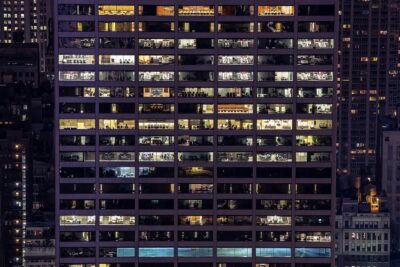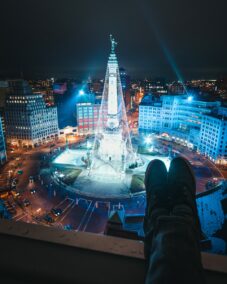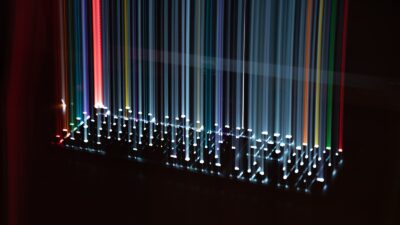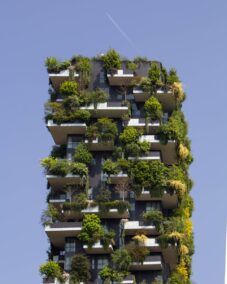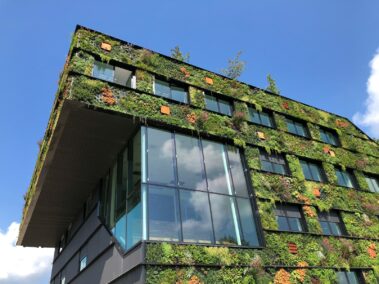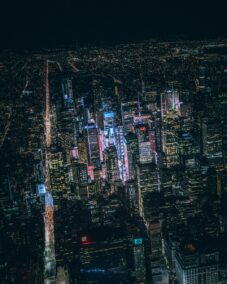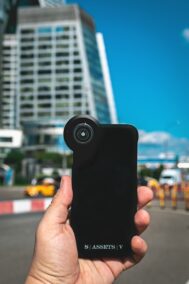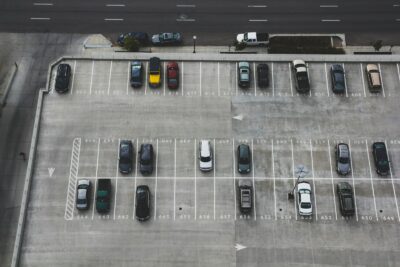An Insightful Look at How Smart Lighting Enhances City Life
Smart Lighting Solutions for Sustainable Urban Environments are transforming urban centers like Dubai and Riyadh into models of sustainability and efficiency. This innovative approach to city planning not only enhances the aesthetic appeal of urban spaces but also contributes significantly to energy conservation and environmental protection.
The Impact of Smart Lighting on Urban Efficiency
Smart lighting systems use technology like AI and IoT to optimize the use of light based on real-time data. In cities like Dubai, known for its stunning architecture and bustling nightlife, smart lighting contributes to both the beauty and functionality of the city. These systems adjust brightness based on natural light availability and human activity, significantly reducing energy consumption. For instance, when sensors detect minimal activity, lights dim to save power, slashing municipal energy bills by up to 60%. This kind of efficiency is crucial for large cities looking to manage their resources more effectively.
Enhancing Safety and Security Through Advanced Lighting Technology
In Riyadh, smart lighting systems are integral to city safety strategies. Streetlights equipped with motion sensors increase brightness automatically as pedestrians pass by, reducing the risk of accidents and deterring crime. This proactive approach to urban safety using smart technology ensures that residents feel secure while contributing to the city’s reputation as a modern, safe place to live and work. Moreover, the integration of AI helps in predictive maintenance, where issues can be addressed before they cause disruptions, exemplifying effective city management.
Contributing to Environmental Sustainability
Smart lighting is a pivotal component of sustainable urban development in regions like the UAE and Saudi Arabia. By minimizing wasted light, these systems reduce carbon footprints, supporting both cities’ visions for environmental stewardship. Technologies such as LED fittings, which use less power and have a longer lifespan, are widely adopted in public spaces, roads, and buildings. This not only conserves energy but also reduces the need for frequent replacements, thus diminishing the environmental impact associated with manufacturing and disposing of lighting materials.
Smart Lighting as a Tool for Economic and Social Growth
By transforming urban environments, smart lighting systems foster a more dynamic and productive community. In Dubai, the visual appeal of smart lighting attracts tourists, boosting local businesses and the economy. Additionally, the data collected by these systems can be used for urban planning and development, ensuring that growth is both sustainable and well-informed. Such strategic planning is supported through executive coaching sessions that help city leaders and business managers make the most of this new technology.
Integrating Blockchain for Enhanced Lighting Management
Blockchain technology could revolutionize how we manage and implement smart lighting by enhancing the security and efficiency of these systems. In a city like Riyadh, where digital transformation is key to future growth, blockchain can provide a reliable and tamper-proof platform for managing the vast data generated by smart lighting systems. This could lead to more personalized lighting solutions that are easier to manage and more cost-effective, potentially transforming the entire framework for urban lighting systems.
The Role of Leadership and Management Skills in Implementing Smart Lighting
Effective implementation of smart lighting projects requires strong leadership and management skills. It involves planning, coordination, and a deep understanding of the technologies involved. Leaders in urban development must be skilled in change management and project management to ensure these initiatives succeed. Executive coaching often plays a vital role in preparing these leaders to tackle the challenges associated with such sophisticated systems, helping to streamline the transition to smart urban environments.
Project Management Strategies for Smart Lighting Implementation
Implementing smart lighting systems in urban areas such as Dubai and Riyadh requires meticulous project management to ensure success. This involves a thorough understanding of the technology, careful resource allocation, and continuous monitoring to adapt to any challenges that arise. Effective project management also involves stakeholder engagement—ensuring that all parties, from city officials to residents, understand the benefits of smart lighting and are committed to its success. Training programs and workshops can help equip project managers with the necessary tools to execute these initiatives efficiently, ensuring that the lighting systems meet the cities’ sustainability goals while remaining economically viable.
Boosting Business Success Through Effective Communication
In the context of introducing advanced technologies such as smart lighting in business districts, effective communication plays a pivotal role in ensuring all stakeholders are on board and informed. For businesses in Riyadh and Dubai, adopting smart lighting technologies not only helps reduce operational costs but also boosts corporate responsibility profiles. To achieve this seamlessly, executives and managers need to be clear about the benefits and operational changes that come with these systems. Internal newsletters, workshops, and meetings are essential tools for disseminating information and handling any concerns that employees or partners might have about the transition.
Future Trends in Smart Urban Lighting
Looking forward, the integration of generative AI with smart lighting could offer even more personalized and efficient lighting solutions. Imagine streetlights in Dubai that not only respond to movement but also adapt to weather, traffic, and special events, thanks to AI’s predictive capabilities. Furthermore, as the metaverse evolves, there might be opportunities to simulate and plan lighting setups in virtual environments before they are implemented in real life. This could help urban planners and architects design more effective lighting systems that are both beautiful and functional, potentially setting new standards for urban design worldwide.
#SmartLighting #SustainableCities #UrbanInnovation #GreenEnergy #Dubai #Riyadh #Leadership #ProjectManagement #TechnologyInCities #AI #Blockchain




